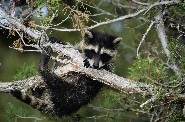-
Adopt
-
Veterinary Care
Services
Client Information
- What to Expect – Angell Boston
- Client Rights and Responsibilities
- Payments / Financial Assistance
- Pharmacy
- Client Policies
- Our Doctors
- Grief Support / Counseling
- Directions and Parking
- Helpful “How-to” Pet Care
Online Payments
Referrals
- Referral Forms/Contact
- Direct Connect
- Referring Veterinarian Portal
- Clinical Articles
- Partners in Care Newsletter
CE, Internships & Alumni Info
CE Seminar Schedule
Emergency: Boston
Emergency: Waltham
Poison Control Hotline
-
Programs & Resources
- Careers
-
Donate Now
 Is the animal an orphan?
Is the animal an orphan?
In the springtime, concerned citizens often mistake young animals left alone as orphans. What most people do not know, is that it is quite common for the young of many mammals and birds to temporarily be left by their parents while the parents are out foraging. Parents conceal their young from predators and only periodically return to the nesting sites to feed and care for the young.
If you find a young wild animal that appears to be orphaned, it is best to leave the animal alone, unless it is facing imminent danger. You should not touch or approach a wild animal, as the scent of a human will often deter a parent from returning to their offspring. Even leaving a human scent leading to the animal can attract predators. It is best to wait from a safe distance and observe the animal until one of the parents return, which could take several hours. If a parent does not return after several hours, keep an eye on the animal and contact a local wildlife rehabilitator (see below).
See this helpful chart to figure out what to do with a baby mammal based on the situation.
In the case of baby birds, remember that part of learning to fly comes with being on the ground. What you ma y think is an orphaned bird, may just be a bird learning how to fly! Watch the bird from a safe distance and keep people, especially children, and companion animals away from the baby bird. It may take several hours but you may be lucky enough to witness the bird learn to fly!
y think is an orphaned bird, may just be a bird learning how to fly! Watch the bird from a safe distance and keep people, especially children, and companion animals away from the baby bird. It may take several hours but you may be lucky enough to witness the bird learn to fly!
If the bird is in imminent danger, know that it is a myth that touching a baby bird will orphan it, as birds do not have scent glands. Returning a baby bird to its nest will not orphan the bird, but again, should only be done if the baby bird is in imminent danger. If you cannot reach the nest safely or if you cannot find the nest, put the baby bird in a small basket and hang it from a branch as close as possible to where you think the bird’s nest is.
If a parent does not return after several hours to claim the baby bird, locate a local rehabilitator (see below).
Learn more about what to do with a baby bird based on the situation.
Is the animal injured?
An injured wild animal can be very dangerous, and as such, it is best to never approach or try to move or handle an injured wild animal. Contact your local animal control officer via your local police department, or a wildlife rehabilitator if you think a wild animal is injured. Without putting yourself in danger, try to make sure the animal is out of danger, and wait until the authorities arrive to help. If you find a baby in need of rescue, please do NOT give it any food or water, as this could further compromise it’s condition.




